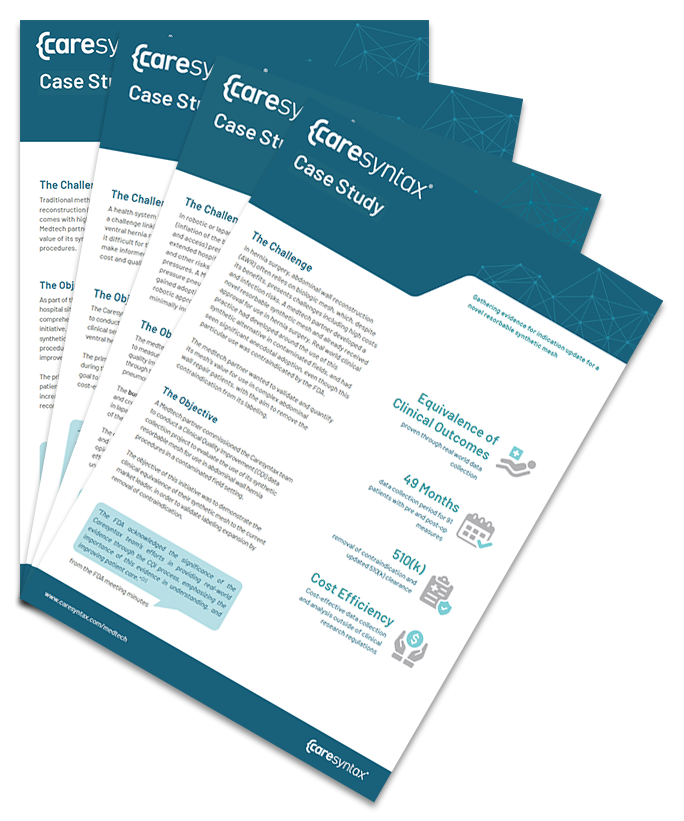Thank you for your interest in learning more about the types of projects Caresyntax has completed with medtech partners.
Each study presents a different data-driven initiative that helped drive commercial success, value improvement, or product development.
Please complete the form to gain access to one or more of our successes.

Caresyntax Worldwide
Berlin, International HQ
Komturstr. 18A
12099 Berlin
Tel: +49 (0) 30 71302970
caresyntax@caresyntax.com
Komturstr. 18A
12099 Berlin
Tel: +49 (0) 30 71302970
caresyntax@caresyntax.com






